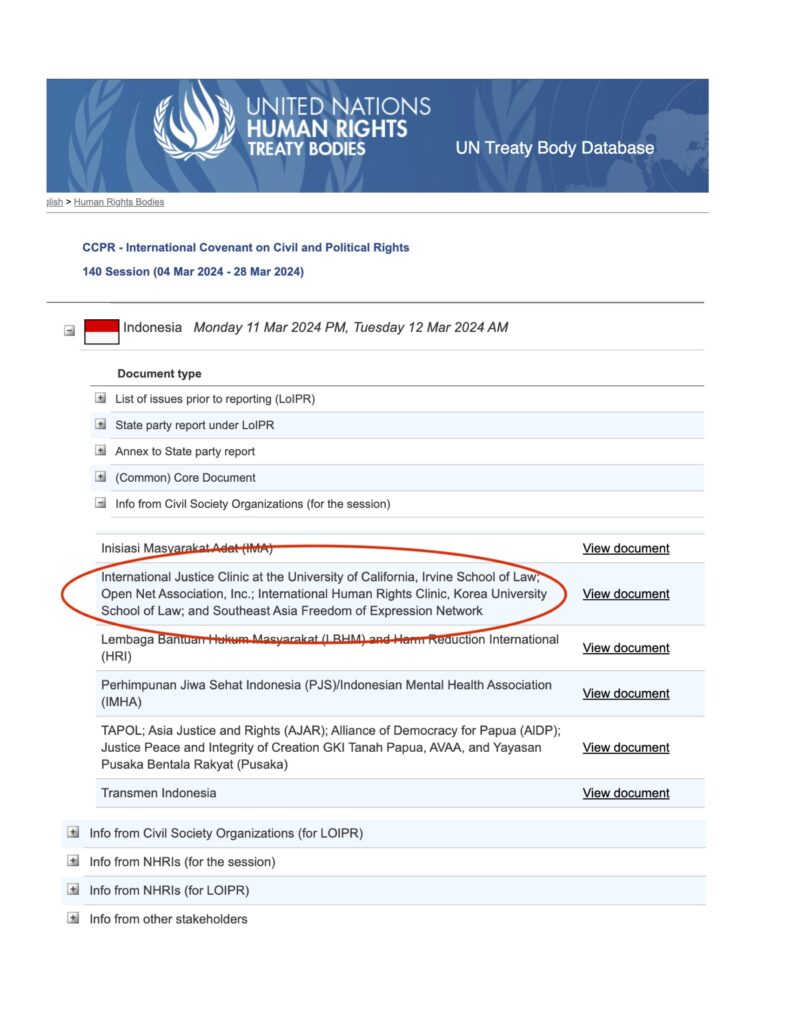On February 6, 2024, Open Net, in collaboration with Southeast Asian Freedom of Expression Network, University of California at Irvine International Justice Clinic, and Korea University International Human Rights Clinic, submitted and published on the United Nations website a shadow report on Indonesia’s free expression, online gender violence, internet access, and surveillance situation which will be considered by the UN Human Rights Committee in its 140th session when it reviews the country’s human rights practice and compliance with the International Covenant on Civil and Political Rights on March 11-12, 2024.

According to the report, contrary to the Human Rights Committee’s position in General Comment 34, the Government of Indonesia infringes the right to freedom of expression through criminalizing defamation, “false news”, “blasphemy”, and “impropriety” through the Criminal Code and the EIT Law. Through these laws, Indonesia has persecuted speakers participating in civic discourse with large fines and prison time.
The government suppresses speech through extreme blocking of online content. Contrary to the Special Rapporteur’s recommendation, the government has made themselves “arbiters on lawful expression”, blocking hundreds of thousands of web pages and posts critical of the ruling majority or conflicting with their cultural dominion. Further, overly broad restrictions on specific content and website registration requirements have resulted in the blanket removal of massive platforms unnecessarily. Additionally, the government has repeatedly engaged in internet shutdowns in the context of religious events, protests, and other controversial situations.
There are notably few legal protections for vulnerable individuals in digital spaces. This failure to protect women, girls, and other vulnerable groups online hinders their participation in digital discourse and public affairs.
Current legislation also allows unlawful or arbitrary surveillance and violation of the right to privacy with an amorphous notion of “national security.” Related laws fail to clearly define the scope and the procedure of interception, and lack minimum safeguards such as judicial warrant or time limit. Regulation further allows the government’s unrestricted direct access to personal data held by private companies.
The coalition will continue on its efforts by attending the UN Human Rights Committee’s review of Indonesia on March 11 and 12, 2024.


0 Comments